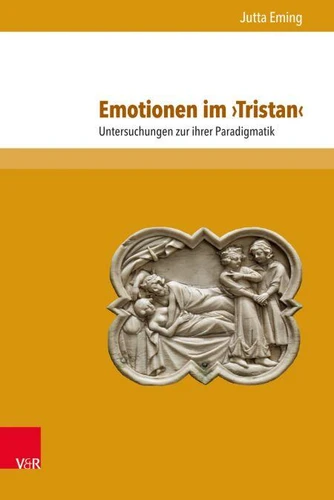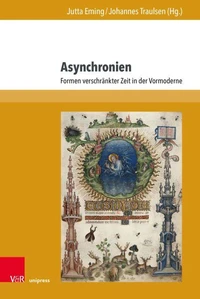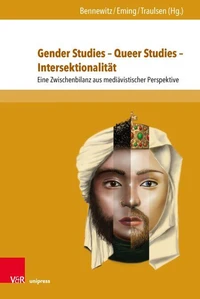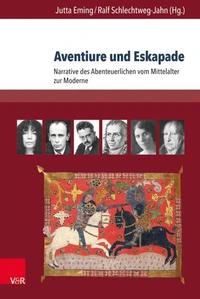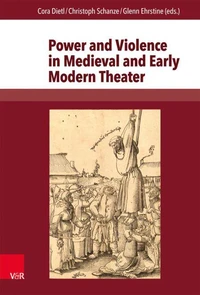Emotionen im ›Tristan‹. Untersuchungen zu ihrer Paradigmatik
Par :Formats :
Disponible dans votre compte client Decitre ou Furet du Nord dès validation de votre commande. Le format PDF est :
- Compatible avec une lecture sur My Vivlio (smartphone, tablette, ordinateur)
- Compatible avec une lecture sur liseuses Vivlio
- Pour les liseuses autres que Vivlio, vous devez utiliser le logiciel Adobe Digital Edition. Non compatible avec la lecture sur les liseuses Kindle, Remarkable et Sony
 , qui est-ce ?
, qui est-ce ?Notre partenaire de plateforme de lecture numérique où vous retrouverez l'ensemble de vos ebooks gratuitement
Pour en savoir plus sur nos ebooks, consultez notre aide en ligne ici
- Nombre de pages234
- FormatPDF
- ISBN978-3-8470-0445-5
- EAN9783847004455
- Date de parution18/11/2015
- Protection num.pas de protection
- Taille2 Mo
- Infos supplémentairespdf
- ÉditeurV&R Unipress
Résumé
From the viewpoint of emotion theory, Gottfried von Straßburg's Tristan is especially significant not only because of its emphasis on emotions within the context of conflicts, decisions and interactions, but also because of the different ways in which emotions are portrayed. These forms of organizing the textual material will be conceptualized as "paradigmatic poetics." Due to the rich variety of emotions represented in this narrative, Tristan and Isolde is also of special interest for research into the broader history of representations of emotions in medieval fictional literature.
In light of recent theories on emotionality, performativity, and narratology, the monograph aims at an reassessment of central episodes of medieval Tristan romances, in particular German version. It is a comparative study, which uses historical as well as modern approaches to emotions to reveal new insights into this classic text and its surrounding literary traditions. The concept of performativity has the fundamental conceptual advantage of allowing the pragmatic functions of emotions to be treated on different levels.
This includes the study of how emotion is related to the body as well as to language, and of the social dynamics associated with emotions.
In light of recent theories on emotionality, performativity, and narratology, the monograph aims at an reassessment of central episodes of medieval Tristan romances, in particular German version. It is a comparative study, which uses historical as well as modern approaches to emotions to reveal new insights into this classic text and its surrounding literary traditions. The concept of performativity has the fundamental conceptual advantage of allowing the pragmatic functions of emotions to be treated on different levels.
This includes the study of how emotion is related to the body as well as to language, and of the social dynamics associated with emotions.
From the viewpoint of emotion theory, Gottfried von Straßburg's Tristan is especially significant not only because of its emphasis on emotions within the context of conflicts, decisions and interactions, but also because of the different ways in which emotions are portrayed. These forms of organizing the textual material will be conceptualized as "paradigmatic poetics." Due to the rich variety of emotions represented in this narrative, Tristan and Isolde is also of special interest for research into the broader history of representations of emotions in medieval fictional literature.
In light of recent theories on emotionality, performativity, and narratology, the monograph aims at an reassessment of central episodes of medieval Tristan romances, in particular German version. It is a comparative study, which uses historical as well as modern approaches to emotions to reveal new insights into this classic text and its surrounding literary traditions. The concept of performativity has the fundamental conceptual advantage of allowing the pragmatic functions of emotions to be treated on different levels.
This includes the study of how emotion is related to the body as well as to language, and of the social dynamics associated with emotions.
In light of recent theories on emotionality, performativity, and narratology, the monograph aims at an reassessment of central episodes of medieval Tristan romances, in particular German version. It is a comparative study, which uses historical as well as modern approaches to emotions to reveal new insights into this classic text and its surrounding literary traditions. The concept of performativity has the fundamental conceptual advantage of allowing the pragmatic functions of emotions to be treated on different levels.
This includes the study of how emotion is related to the body as well as to language, and of the social dynamics associated with emotions.

